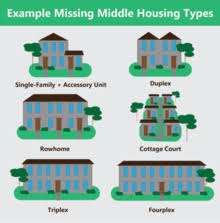
When you sell your house, you must report any profits to the government. This could affect your financial plan, as you may have to pay taxes on the money you made from the sale. Before selling your house, it is vital to understand how to report the sale on your tax return and calculate your total profit.
When Do You Have to Pay Taxes on the Sale of a House?
When you sell your house, the government may tax the money you earn from the sale. But some circumstances might indicate that you do not have to pay taxes or only pay a small amount.
If you’ve lived in your house for at least two years, you can exempt up to $250,000 of your profits from taxes when you sell. If you’re married and file a joint tax return with your spouse, this amount increases to $500,000.
The tax on selling your home is based on the profit you make, not the total amount of money you make from selling it. If you sold your home for less than $250,000 above your buying price and lived there for at least two of the previous five years, you won’t owe any taxes on the sale of your home.
Qualifying for Home Sale Tax Breaks
You must meet these three basic requirements to qualify for a tax break:
- You must have owned the home you sell for at least two years.
- You must have used the home as your primary residence for at least two of the five years.
- You must not have used this tax break to sell another home within the past two years.
Meeting these three basic requirements means you are eligible for the tax break, which can significantly benefit you if you sell the home for a profit.
Qualifying for a Reduced Home Sale Exclusion
If you don’t meet all the requirements for the total exclusion, you can still claim part of the tax break. For example, if you’ve only lived in your home for one year, you could be exempt from $125,000 of any profit you make from selling your home.
To qualify for a reduced exclusion on your capital gains, you must have a valid reason for selling your home sooner than planned. Some valid reasons include losing your job, health changes, or other unforeseen circumstances.
Reporting Your Home Sale on Your Taxes
If you make a profit on your home sale less than the exemption amount, you don’t need to report it on your tax return. If your profit is more than the exemption amount or you do not qualify for the exemption, you must report your home sale and pay taxes on the profit.
The form 1099-S is given to those who sell their homes as a way to report the sale. Unless the person selling the home qualifies for an exemption, they must report the sale on the form. Just because a person receives the form does not mean they automatically owe taxes, but they will need to report the sale nonetheless.
Conclusion
Knowing the taxes that may be incurred when selling a house is important. These taxes can vary depending on the state where the house is located and the profit made from the sale. It is advisable to consult with a tax professional to ensure that all taxes are properly calculated and paid.
At Evergreen Investments, we connect homeowners to wealth-building opportunities from their residential real estate assets. We are a real estate service provider for property owners and investors with industry-leading investment real estate research and world-class advisory and transaction services. Our team provides unparalleled market knowledge, access to hidden investment off-market opportunities, and real estate-related advisory and property support for a lifetime. If you need help with with your taxes, look no further! Get in touch with us and let us know how we can help!




0 Comments